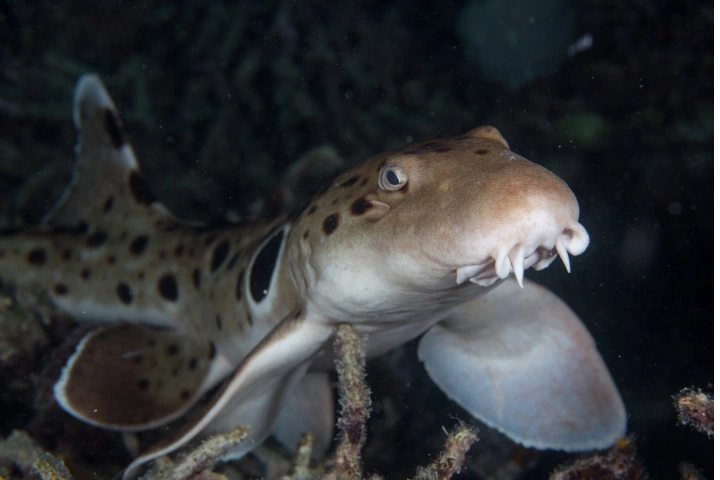

Epaulette shark can move 90 feet across the land using their fins (Pics. Courtesy Twitter/@JeremyBRoberts)
It sounds unbelievable when one hears for the first time that there are sharks that can walk on land but that is true. While stating that it is hardly a nightmarish experience, a report in smithsonianmag.com said that these fishes can move 90 feet across the land.
Forrest Galante, a biologist describing these creatures to Associated Press said: “They’re not sprinting. There are no ankle-biters coming to get anybody. It’s just this fascinating behaviour taking place.”
In a study, details of which were published in Integrative and Comparative Biology, researchers studied these sharks.
Classified as sharks, these fishes are known as epaulette sharks which are harmless and pose no threat to humankind yet are described as the “toughest shark on the Great Barrier Reef” by Australia’s James Cook University’s marine biologist Jodie Rummer who is also the study’s co-author.
Research of these animals is important for experts to know about survival in harsh environments and conditions. For this the scientists studied the mechanics of how these sharks move, juxtaposing their stride when they are newborn to what it is when they are juveniles. In their study, the researchers stressed that the walking on land was not just triggered as a survival strategy to cope with the harsh environment in which they lived but also by change in the climate.
Sharing details on this Marianne Porter, the study’s lead author told Live Science: “Epaulette sharks live at the extremes. If we want to learn what happens to animals under the extreme conditions of climate change, looking at animals already living under these conditions—and understanding how they move and cope—may be the first step.”
Porter is a biologist at Florida Atlantic University.
Growing to 3 feet, Epaulette sharks aka Hemiscyllium ocellatum have fins which are shaped like a paddle and these they use to walk on dry land and across the floor of the ocean.
Their habitat is among the shallow waters in the coral reefs in western Pacific Ocean in the area which is around northern Australia and New Guinea. Significantly, these fishes are so tough that they can manage to survive lack of oxygen for two hours and this trait is mighty useful to overcome challenges of habitat.
Highlighting this to The Guardian, Porter said: “You might not think of beautiful, tropical beaches as harsh, but in reality, tidepools and coral reef environments are pretty harsh, subjected to warm temperatures when the tide is out and a lot of changes. These little sharks can move from tidepool to tidepool, allowing them to access new pools to forage for food, or tidepools with better oxygenated water.”
Prime Minister Narendra Modi on Monday welcomed US Vice President JD Vance, his wife Usha…
Prime Minister Narendra Modi is set to visit Saudi Arabia from April 22 to 23,…
Major Archbishop of Trivandrum of the Syro-Malankara Catholic Church, Cardinal Baselois Cleemis Thottunkal, on Monday,…
Protests against the arrest of Mahrang Baloch and members of the Baloch Yakjehti Committee (BYC)…
Union Home Minister Amit Shah on Monday lauded security forces for neutralising eight Naxals in…
The President of the Tibetan Government in exile, Sikyong Penpa Tsering began his visit to…